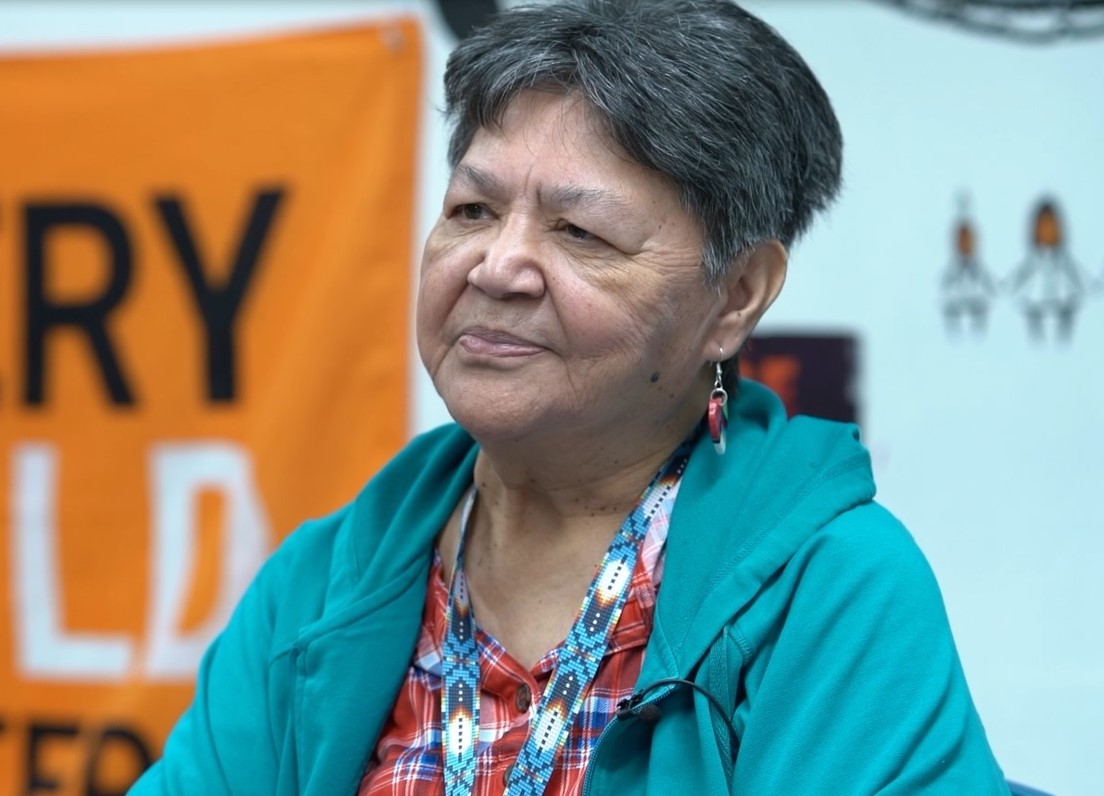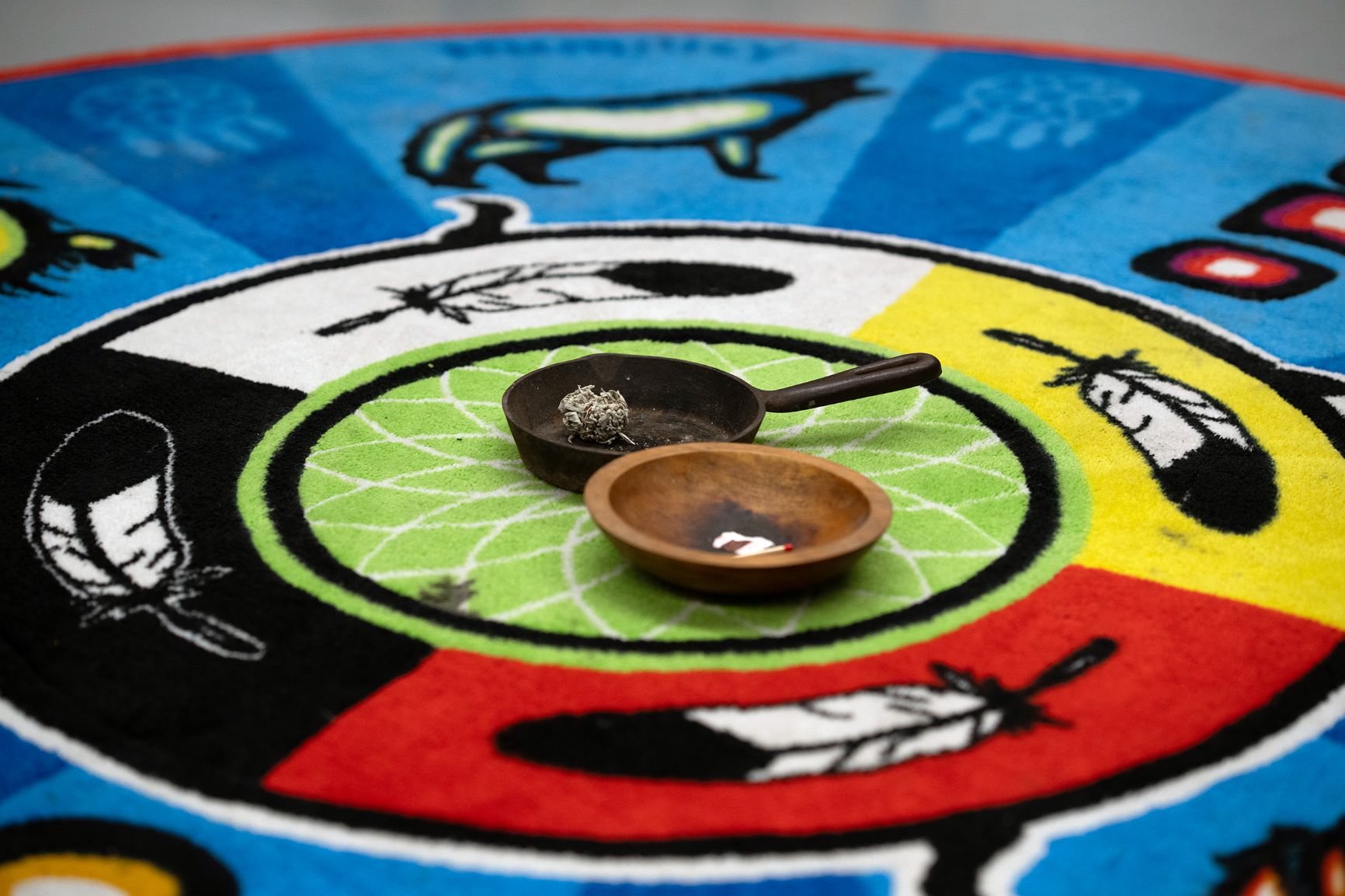
Seven Sacred Teachings significant addition to Structured Intervention Units programming
June 14, 2024

Eighteen months ago, Elder Charlette Daniels had a dream, a vision, about offering the seven sacred teachings to offenders in the structured intervention unit (SIU).
Charlette works at the SIU at Stony Mountain Institution in Manitoba. It took her time to understand and work through the dream and consider its place in the SIU. The seven sacred teachings (also known as the seven grandfather teachings), are guiding values and principles in many First Nations and Métis communities and organizations.

“For many of the inmates here in SIU, this may be the first time they have learned about and understand the traditional teachings and ceremonies. So, they may not have that experience of feeling good of who they are,” says Charlette.
The seven sacred teachings are also part of the 16-step program offered to federally sentenced Indigenous peoples in the institutions’ general population. This program is offered twice a week for eight weeks. However, offenders are in SIU for a much shorter time, usually a month. To give the seven sacred teachings in that time, Charlette created an eight-session program with two sessions a week. Each of the seven teachings is one session. The eighth session is a celebration of what the offenders have learned and accomplished.
Mike Chambers, an Indigenous liaison officer in the SIU, helps Charlette deliver the Seven Sacred Teachings program. The teachings are given in a cultural room in the SIU that features Indigenous art on the walls and medicines for ceremony, such as smudging.
Mike explains that each teaching is represented by an animal.
“We talk about how the significance of that animal is related to all seven teachings
- eagle for love
- turtle for truth
- Sabe (sasquatch) for honesty
- wolf for humility
- beaver for wisdom
- buffalo for respect
- bear for courage
“With every teaching, we talk about family,” says Mike. The importance of family and extended family is integral to the teachings. “There is a specific component with men to share or not. They can journal, explore feelings on past trauma, on growing up, relationships now and relationships in the community.”

Charlette notes that it is difficult for many of the men to talk openly in the sharing circle. For some, it is easier to write down how they feel. So, each is given a journal when they start the program. They are encouraged to write down their thoughts, memories, feelings, and reflections. Mike and Charlette read the journals, which help them get to know each participant.
“Learning and understanding the trauma inmates have come through, why they are here. For me, that is what I base my teachings on,” says Charlette. “Many of them have been part of that intergenerational trauma, so there is a lot of negative issues. When we offer these things to them, we are trying to make them feel positive and for them to understand there is positivity in the community.”
Mike talks about the support other inmates at Stony Mountain provide to the men in the SIU.
“We also use our peers from inside the prison who go through the whole institution to help men in crisis,” he says. “Those men come down here to the SIU. They have contact with us and we invite them to sit with us in our sharing circles program.”

Claude is one of the inmate peers from the medium-security unit who supports the participants in the seven sacred teachings. He is a dedicated member of Stony Mountain’s POPS, which stands for Peer Offender Prevention Services. Offenders from minimum, medium, and maximum offer support to their peers within the appropriate security level, which helps deescalate inmates in crisis, 24/seven.
“For most of these men, the program is their initial involvement into a part of life that has been missing for them,” says Claude. He notes that most of the men come from dysfunctional and broken homes and haven’t learned about their culture.
“So, for a good majority of these men, it is sort of like a rebirthing when they are finding out about it. ‘Okay, this is who I really am. This is how I fit into this world. This is going to work for me, and I like it.’”
Claude says this helps them follow a healthier, positive path.
At the end of eight sessions, the men mark what they have learned with a celebration, a smudge, pipe ceremony, or sweat lodge.

“Philosophy of the program gives the men an opportunity to rediscover, reclaim, and affirm who they are as Indigenous people,” Claude said. “Usually, when you go down the Red Road and you walk the life of the sacred teachings, it involves healing in itself. It’s all about healing, repairing relationships.”
Once the men leave the SIU and return to the general population, Charlette, Mike, and Claude all continue to work with the men, within the institution.At times, Charlette continues to work with them in the community. This is done by seeing inmates upon request on their new units or at the larger lodge Eskwa-a-dum for sweat lodge ceremonies. The seven teachings program gives them a good base to continue on their healing journey and eventual transition to the community.
“I teach them the basic seven teachings and always tell them, ‘Anybody can live this way. It’s not hard. You just have to put your mind to it,’” Charlette says.
Page details
- Date modified: